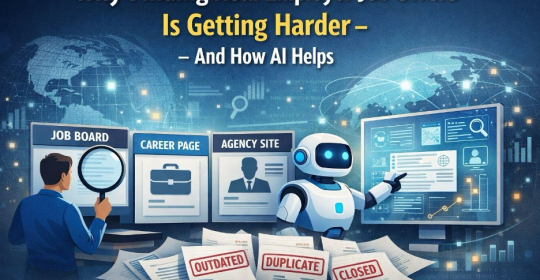Many firms will need to reconsider their hiring practices when this year's graduates begin their careers and have different priorities. As more baby boomers enter retirement, we are observing that the traditional recruiting standards no longer hold true for those who were born after 1997, or "Generation Z. Despite the fact that the focus of many professionals is shifting from financial to non-financial perks, Gen Z's requirements are unique. It is becoming more and more apparent that the demands of this age are disruptive, from flexible hours to hybrid working, a greater focus on work-life balance and purpose. However, despite the expectation around flexibility and ways of working, we have found that Gen Z candidates still want a brilliant social culture and learning environment. This is still key to attracting and retaining Gen Z talent.
These graduates were brought up with technology and are digitally literate, therefore, ensuring that they are targeted online is key. In fact, many won't consider submitting an application if the application process is not online. Gen-Z understands the value of building a personal brand online, with many creating online profiles to showcase their achievements. Ensuring that your brand is easily found online and is fully developed is important.
They are searching for streamlined and innovative tech solutions that can aid this hiring process. For example, mobile-friendly solutions ensure that Gen-Z candidates can apply for jobs from anywhere, on any device. Gen-Z are used to instant communication and waiting more than a week for a response to a job application simply won't cut it. Similarly, when it comes to the interview, ensuring that there is a hybrid option is vital.
Many graduates nowadays not only prefer hybrid working, but expect it. Thanks to the pandemic, long gone are the days in which hybrid working was just a dream. In fact, many of this generation have never known a workplace that is not hybrid. The hybrid set up can also allow for greater work/life balance as less time is spent commuting. Again, work life balance has proven to be more and more of a requirement for Gen-Z. With flexible hours, Gen-Z aims to sign on and off when they like, completing their work, but when amenable to their lifestyle.
In addition to these freedoms a growing number of companies in all sectors are noting the importance of being a good global citizen. More and more are subscribing to the concept of Corporate Social Responsibility, taking, or promising to take, action on ESG and equality, diversity and inclusion within their companies. In fact, in a survey conducted by Ipsos for the BBC found evidence that Gen Zers were far more concerned about prejudice towards minorities than older generations. Many are committing to being carbon neutral in five or ten years while others are pledging to do all they can to ensure they are attracting a more diverse staff. For some, a company with a purpose can be more important than the salary they're being offered.
Understanding this new generation is vital to employers. Recruitment should take a long-term and consultative view, operating on the basis of relationships being the driver of lasting, sustainable success and growth for the business. The current transactional approach of agency recruiting is no longer fit-for-purpose for today’s innovative and ambitious companies, and savvy employers are increasingly accommodating such a shift in focus to both retain and attract talent. Those that then go on and fully embrace this disruptive new wave of graduates, throughout the workplace, will ultimately build a morally conscious, diverse and dynamic organisation.
The War for Talent is not to be underestimated and this new workforce are holding many of the cards. A survey from Adobe found that Gen-Z were the primary drivers of the Great Resignation, and this turnover is now felt by companies. Just over half of Gen-Z respondents in the Adobe study said they planned to pursue a new job in 2021.
However, as we are all aware, plans to move from one job to the next so flippantly are dependent on a buoyant jobs market. In the tech industry for example there is now a large spike in redundancies due to the decrease in stocks and valuations in the tech and fintech space. For many Gen Z employees this is their first time experiencing a downturn or even an environment where choice isn’t as plentiful, and the so-called war for talent is beginning to cool. The real impending battle for Gen Z professionals may be to prove their commitment to employers so they avoid future layoffs.






